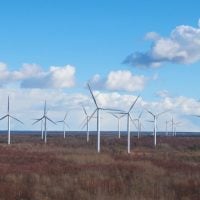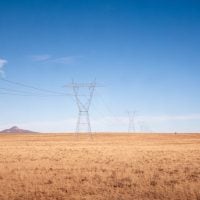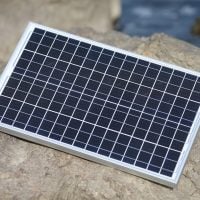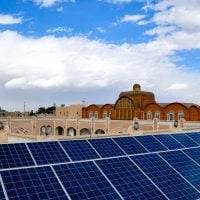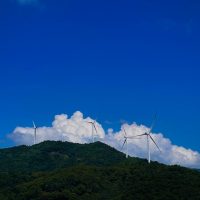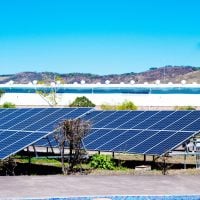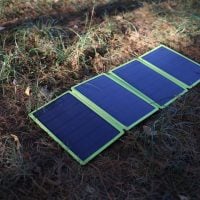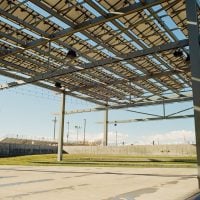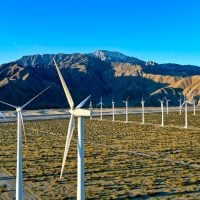In an era marked by climate change and environmental degradation, the intersection of clean energy and education has emerged as a pivotal area for non-governmental organizations (NGOs) to focus their efforts. Clean energy projects aim to harness renewable resources such as solar, wind, and hydroelectric power, reducing reliance on fossil fuels and minimizing carbon footprints. Meanwhile, education projects seek to empower communities with knowledge and skills that foster sustainable practices and promote environmental stewardship.
Together, these initiatives not only address pressing environmental issues but also enhance community resilience and economic development. The integration of clean energy into educational frameworks can create a ripple effect, inspiring future generations to prioritize sustainability. For instance, schools that incorporate solar panels not only reduce their energy costs but also serve as living laboratories for students to learn about renewable energy technologies.
By fostering a culture of sustainability through education, NGOs can play a crucial role in shaping a more environmentally conscious society. This article will explore the various aspects of securing grants for clean energy and education projects, providing actionable insights for NGO professionals. Are You Working on Solar Innovation or Clean Energy Access? Join us to receive updates.
Key Takeaways
- Clean energy and education projects play a crucial role in promoting sustainability and environmental awareness.
- Grants are essential for the success of clean energy and education projects, providing necessary funding and resources.
- Identifying potential grant opportunities requires thorough research and understanding of the specific requirements and criteria.
- Developing a comprehensive project proposal is key to securing grants for clean energy and education projects.
- Sustainable practices should be integrated into clean energy and education projects to maximize their long-term impact and effectiveness.
Understanding the Importance of Grants for Clean Energy and Education Projects
Grants serve as a vital financial lifeline for NGOs engaged in clean energy and education projects. Unlike loans, grants do not require repayment, allowing organizations to allocate resources toward innovative solutions without the burden of debt. This funding can be instrumental in launching new initiatives, expanding existing programs, or conducting research that informs best practices in the field.
Moreover, grants often come with additional benefits, such as networking opportunities and access to valuable resources that can enhance project implementation. Understanding the landscape of grant funding is essential for NGOs aiming to maximize their impact. Many foundations and government agencies prioritize funding for projects that align with their mission and objectives.
For clean energy and education initiatives, this means demonstrating how proposed projects contribute to broader goals such as reducing greenhouse gas emissions, improving energy efficiency, or enhancing educational outcomes in underserved communities. By clearly articulating the alignment between project goals and funder priorities, NGOs can significantly increase their chances of securing necessary funding.
Identifying Potential Grant Opportunities for Clean Energy and Education Projects

Identifying potential grant opportunities requires a strategic approach that involves thorough research and networking. NGOs should begin by compiling a list of foundations, government agencies, and corporate sponsors that have a history of funding clean energy and education initiatives. Online databases such as GrantStation or Foundation Center can be invaluable resources for discovering potential funders.
Additionally, subscribing to newsletters from relevant organizations can keep NGOs informed about new funding opportunities as they arise. Networking plays a crucial role in uncovering grant opportunities. Attending conferences, workshops, and seminars focused on clean energy and education can facilitate connections with potential funders and collaborators.
Engaging with other NGOs in the field can also provide insights into successful grant applications and funding strategies. By building relationships within the sector, organizations can gain access to insider knowledge about upcoming grants and best practices for securing funding.
Developing a Comprehensive Project Proposal for Clean Energy and Education Projects
A well-crafted project proposal is essential for securing grant funding. It should clearly outline the project’s objectives, target audience, methodology, budget, and expected outcomes. NGOs must articulate the specific problem they aim to address through their clean energy or education initiative, supported by relevant data and research.
This foundation establishes credibility and demonstrates the need for the proposed project. In addition to outlining the project’s goals, it is crucial to include a detailed implementation plan that highlights key milestones and timelines. Funders want to see that organizations have a clear strategy for executing their projects effectively.
Furthermore, including a robust evaluation plan that outlines how success will be measured can enhance the proposal’s appeal. By demonstrating a commitment to accountability and continuous improvement, NGOs can instill confidence in funders regarding their ability to deliver impactful results.
Incorporating Sustainable Practices into Clean Energy and Education Projects
Sustainability should be at the core of any clean energy or education project. This involves not only utilizing renewable resources but also ensuring that project activities are environmentally responsible and socially equitable. For instance, when implementing solar energy systems in schools, NGOs should consider sourcing materials from local suppliers to support the community’s economy while minimizing transportation emissions.
Incorporating sustainable practices also extends to educational content. NGOs can develop curricula that emphasize environmental literacy, teaching students about the importance of conservation, renewable energy technologies, and sustainable living practices. By fostering a holistic understanding of sustainability among students, organizations can empower them to become advocates for change within their communities.
Leveraging Partnerships and Collaborations for Clean Energy and Education Projects

Collaboration is key to amplifying the impact of clean energy and education projects. NGOs should seek partnerships with local governments, educational institutions, businesses, and other nonprofits that share similar goals. These collaborations can provide access to additional resources, expertise, and networks that enhance project implementation.
For example, an NGO focused on solar energy education might partner with a local university’s engineering department to develop hands-on training programs for students. This partnership not only enriches the educational experience but also fosters innovation by bringing together diverse perspectives. Additionally, collaborating with local businesses can create opportunities for internships or job placements for students interested in pursuing careers in clean energy fields.
Implementing Effective Education Strategies for Clean Energy Projects
Effective education strategies are essential for ensuring that clean energy projects achieve their intended impact. NGOs should consider employing a variety of teaching methods to engage different learning styles among students. Hands-on activities, interactive workshops, and field trips to renewable energy facilities can provide practical experiences that reinforce theoretical knowledge.
Moreover, integrating technology into educational programs can enhance learning outcomes. Online platforms can facilitate virtual workshops or webinars featuring experts in clean energy fields. Utilizing social media can also help spread awareness about clean energy initiatives while encouraging student participation in discussions about sustainability.
Demonstrating the Impact of Clean Energy and Education Projects
Demonstrating the impact of clean energy and education projects is crucial for securing ongoing support from funders and stakeholders. NGOs should establish clear metrics for evaluating project success from the outset. This may include tracking energy savings achieved through renewable installations or measuring changes in students’ knowledge about sustainability before and after program participation.
Collecting qualitative data through testimonials or case studies can also provide compelling evidence of a project’s impact on individuals and communities. Sharing success stories through newsletters or social media can help raise awareness about the importance of clean energy initiatives while showcasing the organization’s effectiveness in achieving its mission.
Ensuring Long-Term Sustainability of Clean Energy and Education Projects
To ensure long-term sustainability, NGOs must develop strategies that extend beyond initial funding periods. This may involve creating revenue-generating models such as offering training programs or consulting services related to clean energy technologies. Additionally, building strong relationships with community stakeholders can foster ongoing support for projects even after grant funding has ended.
Engaging students as advocates for sustainability can also contribute to long-term success. By empowering young people to take ownership of clean energy initiatives within their schools or communities, NGOs can create a culture of sustainability that endures over time.
Overcoming Challenges in Securing Grants for Clean Energy and Education Projects
Securing grants for clean energy and education projects is not without its challenges. Competition for funding is fierce, with many organizations vying for limited resources. To overcome this hurdle, NGOs must differentiate themselves by clearly articulating their unique value proposition and demonstrating their capacity to deliver impactful results.
Additionally, navigating complex grant application processes can be daunting. Organizations should invest time in understanding funder requirements and tailoring proposals accordingly. Seeking feedback from peers or mentors who have successfully secured grants can provide valuable insights into improving proposal quality.
Maximizing the Potential of Clean Energy and Education Projects through Grants
In conclusion, clean energy and education projects hold immense potential for driving positive change within communities while addressing critical environmental challenges. By understanding the importance of grants, identifying funding opportunities, developing comprehensive proposals, incorporating sustainable practices, leveraging partnerships, implementing effective education strategies, demonstrating impact, ensuring long-term sustainability, and overcoming challenges in securing grants, NGO professionals can maximize their efforts in this vital area. As we move forward into an increasingly uncertain future regarding climate change, it is imperative that NGOs continue to advocate for clean energy solutions while educating communities about sustainable practices.
Through strategic grant funding efforts, organizations can empower individuals with the knowledge and tools necessary to create a more sustainable world for generations to come.



